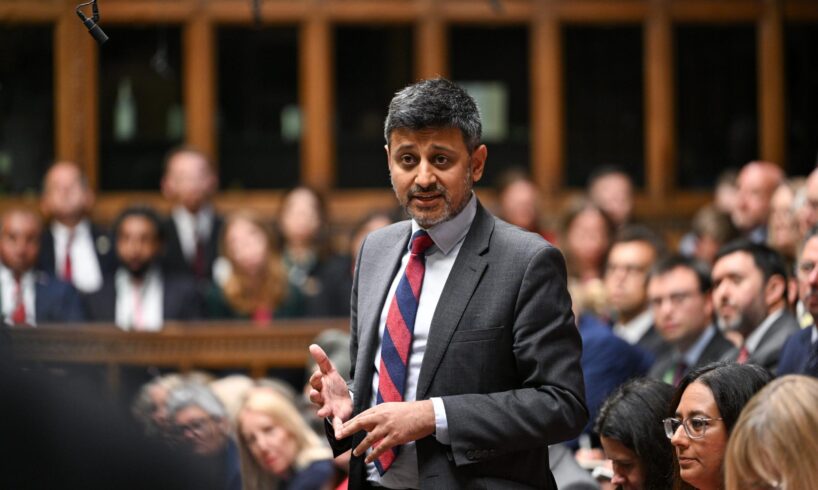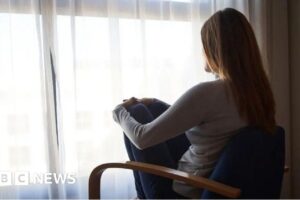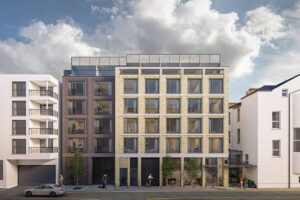
Posting to X on Saturday night, Ahmed, who is a junior minister in the Department of Health and Social Care, wrote: “The bonkers SNP govt entices 100s of vulnerable people with complex needs from all across the country to Glasgow under false pretences.
Glasgow City Council is struggling to cope with the increased number of refugees seeking homeless accommodation. (Image: Newsquest Media Group)
“They then unilaterally drop them into some of the challenged communities and make local 3rd sector organisations, the NHS and social services pick up the tab.
“As long as they can luxuriate in virtue they’re happy for everyone else to pay the price.”
Ahmed was responding to a series of tweets by SNP councillor Mhairi Hunter, who said that many homeless refugees had chosen to move to Glasgow because “our services are better than the rest of the UK”.
Hunter added: “This is a problem for us – but it is not a fault! It’s incredible to watch Labour people lining up to condemn Glasgow for providing better services for homeless people than other cities do, as though that is a bad thing. That’s actually sick.”
The mudslinging began after East Kilbride MP Joani Reid accused the party of turning Glasgow into a “a sanctuary for asylum seekers” as a result of “virtue-signalling policies”.
Reid, who represents East Kilbride and Strathaven in Westminster, is the granddaughter of prominent trade unionist and leftist politician Jimmy Reid.
She told The Scotsman: “Scotland has a proud record of welcoming people fleeing persecution. But the Scottish Government’s decision to scrap local connection rules in 2022 wasn’t driven by compassion or a genuine desire to support asylum seekers. Like so much of what the SNP does, it was about looking virtuous and morally superior.”
She had previously tweeted on X: “The SNP are taking the biscuit. They chose to turn Glasgow into sanctuary for asylum seekers through their own virtue-signalling policies, and now they want the Home Office to bail them out.
“It’s the same old story – grandstanding about compassion, then crying foul when the bill arrives.
Joani Reid is the MP for East Kilbride and Strathaven.(Image: ParliamentLive)
Under Scottish law, any individual who is not voluntarily homeless has the right to settled accommodation.
By comparison, local authorities in England accommodate people in ‘priority need’ first, meaning asylum seekers who are removed from hotels after successfully gaining permission to stay in the UK, may be more likely to seek shelter in Scotland.
Responding to Reid’s claims last week, Glasgow City Council leader Susan Aitken said that the MP appeared to be ‘plotting a defection to Reform’.
She tweeted: “Glasgow has hosted asylum seekers & refugees for over 2 decades, it has immeasurably enriched our culture and economy. It’s long had cross-party support & it’s disturbing to see Scottish Labour people try to destroy that consensus.”
Writing in The Herald in August, Aitken said that while she was proud of the role Glasgow plays in supporting refugees, the UK Government’s asylum policies are “a machine that creates homeless refugees, with the government then washing its hands and leaving local authorities to deal with the consequences as best they can.”
According to Aitken, more than 12% of homelessness demand in the city comes from households travelling to Glasgow after being granted leave to remain elsewhere in the UK.
As a result, 44% of all homeless presentations are from refugee households, and the council projects to spend £66m next year on making up the burgeoning homeless budget.
Read more:
Joani Reid: SNP should leverage ‘brand Britain’ to attract more migrant workers
‘Can’t cope’: Two thirds of homeless children in housing emergency digs are refugees
‘We don’t think the same way as Westminster’ says Glasgow priest who has opened his home to refugees
Previously, successful asylum claimants were given 56 days to find housing and employment after being informed that the government’s support was being withdrawn.
However, in August, the number of days for most refugees was halved to 28, sparking concern that more refugees will be forced onto the street.
That was after the grace period was raised to 56 from 28 last December, in a bid to help out struggling local authorities like Glasgow.
The bosses of housing charities Naccom and Homeless Link have said that the reduced time “will put even more pressure on overstretched local authorities and voluntary sector services”.





